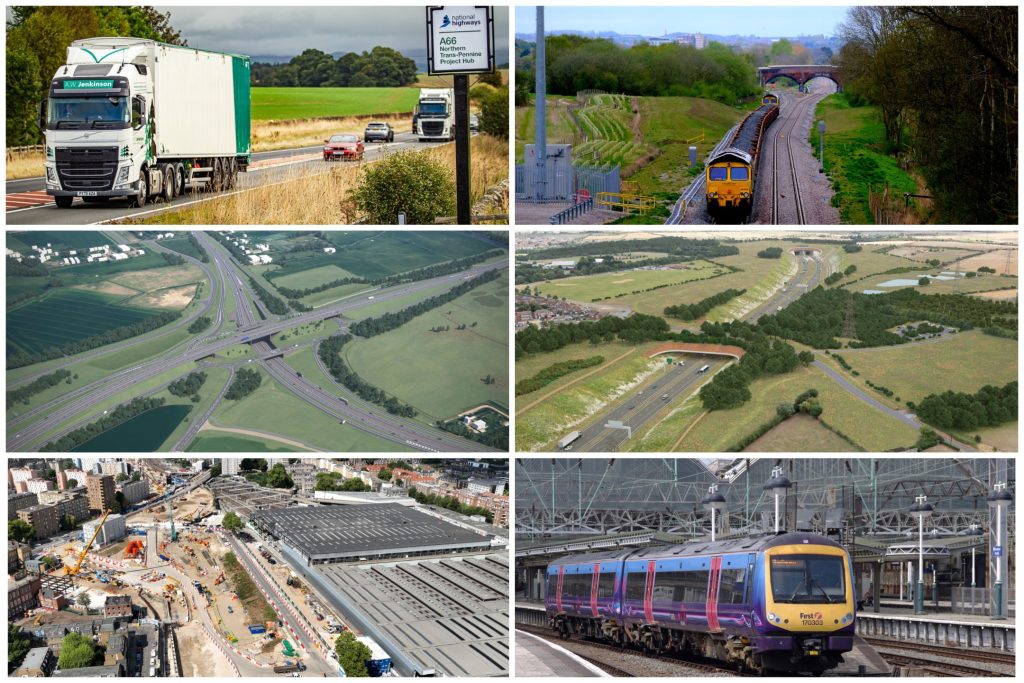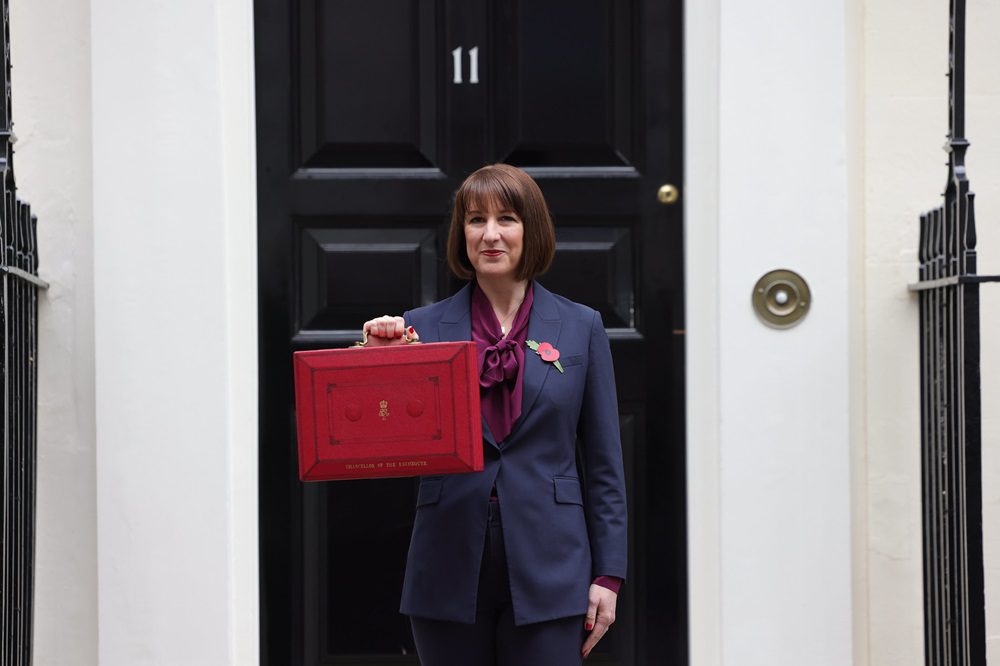Review of DfT capital spend portfolio could see more transport projects cancelled

This post was originally published on this site

The transport secretary is commencing an internal review of the Department for Transport’s (DfT’s) capital spend portfolio to find ways of closing a £2.9bn funding gap for this year, which could spell the end for some large infrastructure projects.
Chancellor Rachel Reeves announced on Monday that an audit of the government’s finances revealed a £22bn black hole for this financial year alone and made immediate cuts to start closing it. Among her immediate actions were the cancellation of the A303 Stonehenge Tunnel and the Restoring Your Railways programme.
Reeves said that transport secretary Louise Haigh would be carrying out further exploration of the DfT’s spending plans inherited from the previous government to see what else could be done to make up the shortfall.
Haigh’s written statement to Parliament announcing the internal review of DfT projects reveals that of the £22bn government funding shortfall in this financial year, £2.9bn is attributed to “unfunded transport commitments”.
She adds that “there has been a lack of openness with the public about the status of schemes – some of which were cancelled or paused by the previous government, without proper communication to the public”.
Haigh says that “external expertise” will be brought in to help make recommendations about current and future schemes. This is despite the chancellor announcing that one area where government purse strings would be tightened is “all non-essential spending on consultancy”.
The transport secretary puts a positive spin on the prospect of the review by adding that it will “support the development of our new long-term strategy for transport, developing a modern and integrated network with people at its heart and ensuring that transport infrastructure can be delivered efficiently and on time”.
She concludes: “I am determined that we build the transport infrastructure to drive economic growth and opportunity in every part of the country and to deliver value for money for taxpayers. That ambition requires a fundamental reset to how we approach capital projects – with public trust, industry confidence and government integrity at its heart.”
Projects under scrutiny
With the Budget having been set for 30 October, there is a chance that it could bring yet more bad news for public infrastructure projects following the internal review.
Rail
HS2 to Euston
In the lead up to Reeves’ speech on Monday, rumours had been swirling that she would officially put an end to plans for High Speed 2 (HS2) to reach central London at a new Euston station.
Ultimately no changes to HS2 were made in the announcement.
However, quizzed on The News Agents podcast on 30 July about whether HS2 will reach Euston, Reeves could only muster: “I very much hope so, but the DfT and our new transport secretary will be looking at every penny to make sure we’re getting good value for money.”
The HS2 Euston project was “rephased” by the previous government, with plans for the high-speed line to have Old Oak Common in west London as its terminus at least initially. The Conservative government then took control of the Euston station project and had been looking to leverage around £6bn in private funding to develop the area around the Euston site – which now sits as a big hole in the middle of the city – and bring forward a new HS2 station with smaller scope.
The previous regime had repeatedly said that there was plenty of private interest in this plan but had not publicly revealed any details of conversations that had taken place. London mayor Sadiq Khan and National Infrastructure Commission chair Sir John Armitt had both expressed doubt that this approach would be successful.
The Labour government has not made clear its intentions around HS2 Euston but Haigh said last week “clearly we need a plan” for the station and she was working “at pace” to figure it out.
If the government moves forward with attempting to court private investors then its cancellation would not save much from the DfT budget. Its cancellation would also hugely reduce the benefits of HS2, which have already been largely wiped away according to a recent report from the National Audit Office (NAO).
Northern Powerhouse Rail
The Northern Powerhouse Rail (NPR) project to upgrade and build entirely new sections of railway between Manchester and Leeds is still at a relatively early stage despite having been on the cards for many years. The government set out the “next steps” for the Liverpool to Manchester section in March.
The accounting officer assessment for NPR, carried out in May but released this week, has said the estimated cost of the project now stands at £30.6bn – but this includes connections to Sheffield, Hull and Bradford (with a new station), which was promised by the former government in its Network North pledges following the cancellation of HS2 north.
The assessment states: “The current government has not yet taken decisions on its future priorities for rail investment in the North.”
It goes on to say that £54M will be spent on further developing the scheme for 2024-25, which suggests that it will be safe from cancellation at the autumn Budget.
A strategic outline business case will be completed by summer 2025 and decisions about its future will be made then.
While she was shadow transport secretary, Haigh spoke often and passionately about the need for NPR and improved rail connections in the North and delivering NPR in full.
Electrification of North Wales line
Electrification of the 170km North Wales Main Line has been another on-again, off-again project since the days of George Osborne as chancellor. The DfT’s Electrification Task Force released a report in 2015 that said that it should be a priority for Control Period 6, 2019-2024. However, no feasibility work has taken place.
It seemed it would finally happen when Network North was released last October, pledging £1bn to the project. However, Network Rail reports that it never received any confirmation from the government that funding was available to commence the work. It has also been suggested that £1bn is not enough to cover the project.
Following Reeves’ reveal of the government funding issues, Welsh secretary Jo Stevens has this week told BBC Radio Wales: “We have to see whether or not there’s actually any money there [for the project]. I rather suspect that there isn’t, because there was no explanation when the Conservatives made that announcement as to how they were going to pay for it and that will form part of the review that the transport secretary is undertaking.”
East West Rail
The new £6-7bn railway between Oxford and Cambridge has had cast doubt over its future on several occasions in recent years, but East West Rail (EWR) seemed to be rounding a corner into certainty when the government supported it in the November 2022 Budget and former transport secretary Mark Harper confirmed the route for the Bedford to Cambridge section in May 2023.
Work on the initial section from Oxford to Bletchley is nearing completion and is expected to come into service in 2025.
However, construction has not yet started on the second section, between Bletchley and Bedford, while the DCO application for the third section has not yet been submitted.
Last year’s Infrastructure and Projects Authority (IPA) Annual Report upgraded EWR’s prospects to “appears feasible”, whereas the previous year it had said delivering the project “appears unachievable”.
On a less positive note, a December 2023 report from the NAO said that the benefit cost ratio for the project has now become ‘poor’ and it is unclear how it aligns with overall growth plans for the country. This will undoubtedly be looked at in the DfT’s review.
Roads
Lower Thames Crossing
The largest planned road scheme in the UK, expected to cost over £9bn, could be another project to come under intense scrutiny. There has already been nearly £300M spent on drawing up the development consent order (DCO) application for the project, which is the largest ever seen at nearly 360,000 pages.
The project to build 23km of new roads and country’s largest road tunnel under the Thames between Kent and Essex was deferred by a couple of years in March 2023 in the face of what the former government termed “challenging economic headwinds”. Additionally, the project has not yet been consented. The decision on whether to grant a DCO was delayed by the previous transport secretary and ultimately deferred due to the election.
The decision now falls to Haigh, who has a deadline of 4 October. The government could deny the application and effectively cancel the project before it commences. There is also a possibility of deferring the DCO decision again until after the Budget.
The outline business case for the project, from 2022, said it had a healthy benefit cost ratio of 1.46, meaning it is good value for money.
Lower Thames Crossing is a controversial project due to the sheer scale of it. National Highways has said it will be a pathfinder for carbon neutral construction as it will utilise hydrogen-powered vehicles including excavators and dump trucks. However, it has been accused of “greenwashing” by campaign groups who say it is “hugely destructive and harmful, and it fails to meet scheme objectives”.
The project has also proven unpopular with affected local authorities. Both Thurrock Council and Gravesham Borough Council have expressed opposition to it. Parliamentary candidates for South Basildon and East Thurrock constituency, which includes the site of the northern part of Lower Thames Crossing, said they would work to stop the scheme if elected. However, the seat was ultimately won by the Reform UK candidate, which was the party least vehemently opposed to it.
If the scheme does get axed, some compensation will likely have to be paid to the appointed contractors Balfour Beatty, which won a £1.2bn contract on the project, Bouygues-Murphy JV for its £1.3bn tunnelling contract and Skanska for its £450M roads contract.
A66 Northern Trans-Pennine
The £1.3bn project to dual single-carriage sections of the A66 finally received its DCO in March this year, but it is now being hung up by campaigners who are appealing the decision to consent it in High Court.
The project will upgrade the 80km route between the A66 at Penrith and the A1 at Scotch Corner, ensuring the roughly 30km of sections that are single carriageway are dualled. This will improve connectivity in the region and make the route safer, as it is currently one of the deadliest stretches of road in the UK.
However, the last accounting officer assessment for the project, carried out in October 2022, found that it had a BCR of 0.9, which is ‘poor value for money’. A full business case for the project was expected in 2023, at which point a new assessment was to be made. This has not materialised.
The project is intended to be a showcase of the DfT’s Project Speed principals, where it slashed the expected construction time from 10 years to five. This has been done by working with the project’s multiple contractors – Kier, Balfour Beatty, Keltbray (and formerly Costain) – from an early stage of drawing up the DCO to efficiency and constructability.
RIS3
Decisions are yet to be made about the quantum of National Highways’ funding for the third roads investment strategy period (RIS3), which will commence in April 2025 and runs for five years. The budget for RIS2 was £27.4bn, but several projects from it have been deferred into RIS3.
Aforementioned roads projects on the A66 and Lower Thames Crossing will be at least part included in the RIS3 plans, unless cancelled or deferred for over five years.
Other large roads projects expected to be in the RIS3 portfolio include the new £1bn 16km dual carriageway A428 Black Cat to Caxton Gibbet, where Skanska is just gearing up for construction following the quashing of a legal challenge; the £1.3bn widening of the A12 in Essex which received DCO in January; and a trio of upgrades on the A47 that could cost up to £500M altogether. There are dozens more that could be included.
However, a report from the transport select committee released last summer said that the RIS system is not working. It stated: “It is time for the government to reconsider its portfolio of expensive, complex strategic road network enhancement projects. There is a compelling case for each RIS portfolio to be smaller in scope to avoid continual deferral of projects from one road period to the next.”
National Highways had previously stated that its focus in RIS3 would be maintaining the existing road network rather than building new roads.
Like what you’ve read? To receive New Civil Engineer’s daily and weekly newsletters click here.





Responses